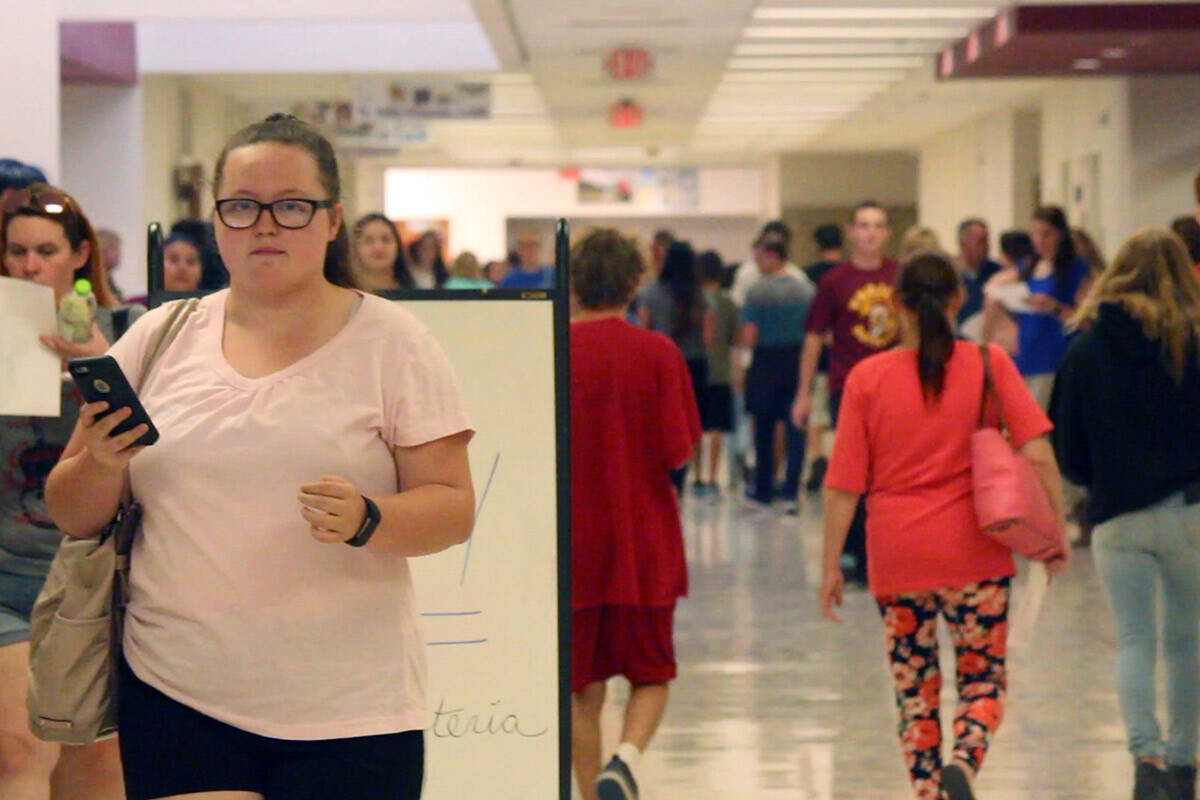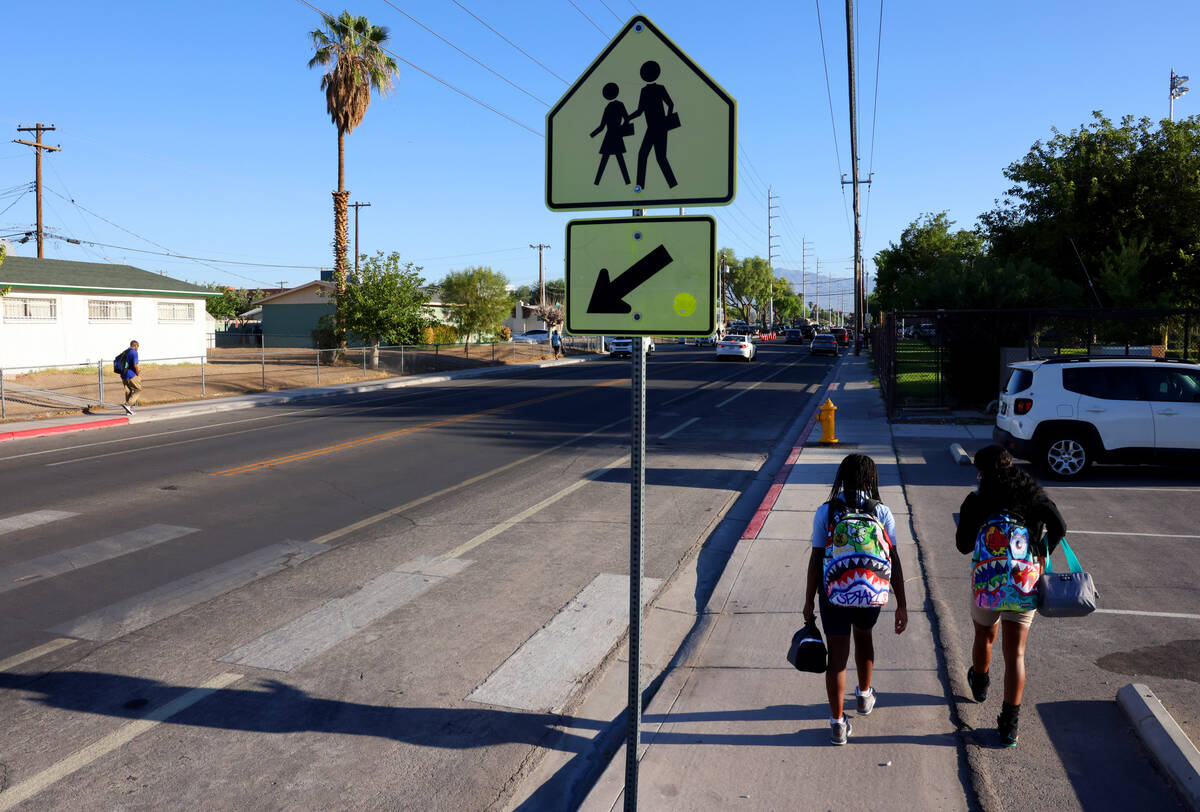Later high school start times should begin in 2025, education leaders say
Nevada education leaders are considering pushing back the implementation of proposed high school start times by another year.
The Nevada State Board of Education approved another update Wednesday to draft language for a new regulation that would require high schools to start no earlier than 8 a.m.
Board members decided to push the target implementation date by one year, from next school year until the 2025-26 school year. The state also plans to gather additional data.
A final decision on the regulation hasn’t been made yet. The draft language is going to the state’s Legislative Counsel Bureau before it will come back to the State Board of Education for possible action.
Proponents say later school start times would lead to better student outcomes. But opponents — including school districts and superintendents statewide — say decisions should be made locally and that a regulation would have major impacts in areas such as bus transportation and athletics.
Several Clark County School District officials spoke during an hour-long public comment period at Wednesday’s meeting.
Luke Puschnig, the district’s general counsel — who also raised similar concerns at a meeting last month — said he’s requesting a formal answer to the question, “By what authority are you going to disrupt the fifth-largest school district in the country?”
If the board implements a regulation, the district will have no choice but to take whatever legal actions necessary to prevent the disruption, he said.
The district said in a Thursday statement that it “continues to express concerns” about the proposed changes.
State law doesn’t give the State Board of Education the “statutory authority” to set school start times, the district wrote.
“CCSD remains hopeful that the Legislative Counsel Bureau and other state authorities will serve as the appropriate check and balance to inform the Board of Education of its overreach,” the statement read.
The district also said state board members have “claimed overwhelming support for the change” but ignored opposition from educational leaders.
“Overwhelming statewide opposition to changing start times should be sufficient for the State Board of Education to reconsider its position,” Superintendent Jesus Jara said. “Unfunded mandates, safety risks, student schedule disruption, impacts to families, staffing challenges, and lack of legal authority are being ignored as the Board moves this unpopular proposal forward.”
Change apply to high schools
State board member Maggie Carlton said Wednesday she’s still not convinced the board is doing the right thing.
But finally, in the last couple of meetings, the board has gotten folks’ attention, she said. “People have actually started to engage.”
There are still two or three steps before anything goes into a final regulation and implementation, board member René Cantú said.
“I would hate to, you know, be caught in a situation where we’re continually gathering information and then doing nothing,” he said.
Last month, the State Board of Education approved the first draft of regulation language, which calls for a gradual implementation and waiver options.
The first version referenced school start times more generally, while the latest version specifies that the regulation only applies to high schools.
Start School Later, Inc., a national nonprofit organization that has a Clark County chapter, has expressed support for the regulation.
“This is exciting news for the Nevada teens who will experience the known benefits of healthy school hours,” said Terra Ziporyn Snider, co-founder and executive director, in a Wednesday night statement.
‘Inappropriate overreach’
The Clark County School Board heard a presentation last month about possible school start time options if a new state regulation goes into effect.
Those include pushing start times one hour later, switching high school and elementary times, and consolidating the current three-tier bell schedule into two tiers.
It could also consider bus service reductions to partially offset increased costs. Those could include increasing the general education “walk zone” from 2 to 5 miles, or not offering transportation for magnet schools and career and technical academies.
During Wednesday’s state board meeting, Patricia Haddad — director of government relations for the school district — urged the board to pause the development of the regulation.
The proposal is an “inappropriate overreach” and would be forcing an unfunded mandate on school districts, she said.
The state board hasn’t seriously considered the financial implications to districts or families, and community members haven’t been meaningfully engaged, Haddad said.
Chief Operating Officer Mike Casey raised concerns about the original implementation date of next school year. Bell schedules for the upcoming school year are provided in January to schools as part of the budgeting process.
Casey said he understands the intent of the regulation is to improve academic performance for a specific student group. But, he said, it could be detrimental to the broader student population, food insecure families and the community at large.
Clark County School District Police Lt. Bryan Zink said that if start times change, more students would be walking near campuses closer to dusk and that could potentially increase incidents on the roadways with pedestrians.
About 30 children have been struck by vehicles on their way to and from school during daylight hours this year, Police Traffic Sgt. Mike Campbell said.
Director of Athletics Timothy Jackson said many student athletes participate in outdoor sports that aren’t illuminated at night.
The district may have to reduce its number of offerings and place limits on student athletes, he said.
It could also mean having to pull students out of class early, and shift practice and game times later into the evening, Jackson said.
























